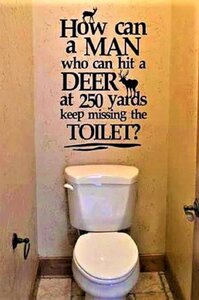-
Posts
11,406 -
Joined
-
Last visited
-
Days Won
355
Content Type
Profiles
Forums
Gallery
Downloads
Blogs
Events
Our Shop
Movies
Posts posted by old man emu
-
-
54 minutes ago, nomadpete said:
I don't know what the problem is.
Long range accuracy requires a long barrel.
I've never had a problem!
Do you have problems with chokes?
-
 1
1
-
-
1 hour ago, pmccarthy said:
Plat in mining is the access to the shaft on each level
That means that it is jargon and only has meaning in a specific area. It wouldn't have meaning in an open cut mine, would it?
-
My mate in Sweden tells me that a work colleague and his wife have caught COVID a second time.
-
King James had to do something to bring about a standardised Bible because sectarian differences, especially those of the Puritans, could have lead to the religious conflicts that marred the reigns of his predecessors Elizabet 1 and Henry VIII. He had enough other problems due to the political situation of his kingship - he being Scottish and not of the House of Tudor.
-
 1
1
-
 1
1
-
-
Spacey,
The King James version of the Bible was put together by Protestant churchmen at the command of King James. He didn't put pen to paper for any of it.
-
 1
1
-
-
"Guns don't kill people. People kill with guns". You can't blame the electronic device for the condition of our society. You have to blame the programming. I recently watched three seasons of an Australian-made drama involving the Legal profession on the Crown side. The technical production standards as well as the acting standards were of the highest order. It showed that we can produce world class TV. However, I commented to my wife that the series were commissioned by the ABC. I looked to find when the next series would be made, but it has been cancelled. The topics for the series held politicians and high ranking public servants in low esteem as part of their plots. It made me think that the reason for the cancellation was that the themes were cutting a bit close to the quick for real politicians. Cut the funding to the ABC and we'll have no more of that sort of innuendo.
So if we have the skills to make high quality TV, and those skills are sought out by even the American film-makers, why don't we make great TV for kids so that we don't have to import the violent culture from a decadent society?
-
 3
3
-
-
Plait etymology: late 14c., pleit, "a fold, a crease, a flattened gather made by doubling cloth or similar fabric in narrow strips upon itself," also "interlaced strands of hair," from Anglo-French pleit, Old French ploit, earlier pleit, "fold, manner of folding," from Latin plicatus, past participle of plicare "to lay, fold, twist" (from PIE root *plek- "to plait").
Plat etymology: flat piece of ground," mid-15c. (mid-13c. in surnames), a variant of plot (n.) assimilated to Middle English plat (adj.) "flat," which is from Old French plat "flat, stretched out" as in "plateau"
"PLAD" is not a recognised word. It is a medical acronym that we would meet as Posterior Lip Augmentation Device (hip surgery)
Plaid etymology: 1510s, "garment consisting of a long piece of woollen cloth, often having a tartan pattern, traditionally worn in Scotland," from Scottish, from or related to Gaelic plaide "blanket, mantle,". The meaning "a pattern of bars crossing each other at right angles" is by 1890. As an adjective, "ornamented with a pattern of bars or stripes of colour crossing one another at right angles," c. 1600, from the noun.
-
5 hours ago, octave said:
I would argue that many rules we have now are innate and are a result of these riles conferring a survival advantage.
No doubt you are correct. The writing down of the rules in the Holy Book of one sect does not make them the only source. I think that most intelligent people will agree that the rules in the Abrahamic religions are a compilation of the rules of the civilisations of the Middle East. Since I know little of the philosophies of religions other than the Abrahamic ones, I can't say the same thing about those societies.
-
 2
2
-
-
I know that we grew up with the Three Stooges, but that was slapstick, not battle. I played wargames too, with Owen guns made from roof tile baton, and read the air battle comics under the Commando banner.

But I wasn't consistently exposed to the level of violence of the Marvel and DC comics, such as Spiderman, Captain America and the like, whose themes are more in the adult range than Primary School kids. My clothes weren't adorned with the motifs of these so-called superheroes. I would have been chuffed if I had been given a Davey Crockett 'coon skin cap.
Octave, most of the time you counter when I say that young people exhibit a lot of unacceptable behaviour traits. I believe you say this because as a teacher of musing and instrument playing, you are dealing with a unique group of young people who are willing to discipline themselves and have set out goals. They are the one who will make good as adults. On the other hand, I feel that the majority lack that level of self discipline and drive towards goals. They are the ones who are being adversely affected by the amount of violence they are subjected to in the name of "entertainment".
Can you name a popular moving in the past five years that didn't involve violence? What about current song lyrics? There's no sweet sixteen who gets a first kiss on the Ferry 'cross the Mersey.
-
 3
3
-
-
School holidays and the wife and I have the grandson with us while Dad is at work. Another school holidays when my hackles are raised when I see the young bloke bashing his action figures together in fights. Why does a usually loving kid play like that? Because he's constantly subjected to violence in what he watches on TV and iPad. Am I crazy or fanatical about my hate for the amount of violence he's subjected to? Take the time to watch what the media serves up to him. Superheroes in constant physical contact with malefactors. Conflict at various levels in everything. Look at The Lion King. That's a retelling of the adult themes of Hamlet.
For sure we have always taught our children with tales of witches and boogie-men. Bib and Bub had to deal with the scary Banksia Men. But they were simply scary. They didn't resort to fists and swords and guns. Our children are being poisoned by the gun culture of the USA. Can we expect to put a lid on Domestic Violence in the future if those entering domestic relationships have been brought up with the idea that the only way to settle conflict is through violence?
Are our kids affected by what they see on TV? They sure are. Here's a little experiment that shows how kids rhymes are changed over the years by what they see on TV.
Go on, say it. "OME you are over-reacting!" Am I? Which Ancient Greeks did we get the most from - the philosophers of Athens or the warriors of Sparta?
-
 2
2
-
-
-
Sorry, Red, but although spelled the same way, they are sounded differently. Check entries 1 & 2
-
17 minutes ago, nomadpete said:
If they sell Whyalla steel mill, what chance do we have, that an Australian snaps it up at that fire sale?
9/10ths of bugger all.
-
 3
3
-
-
1 hour ago, Bruce Tuncks said:
There are lots of alternative sets of commandments,
Maybe, but for centuries the Man's behaviour in society was a strong response to the Commandments. If they were your guiding light, then they made it into society's laws. Bertrand Russell was a British polymath, philosopher, logician, mathematician, historian, writer, social critic, political activist, and Nobel laureate. No man-in-the-street. How well known is he now? Not so well, since you misspelled his surname. (Just identifying a point, not insult intended).
The rules of our society may have been initially codified in the Commandments, but they have served us well to ensure peaceful co-existence in local areas. It is when those rules are ignored, or replaced that peace goes out the door. Take the Nazi anti-Semitism. That's a breaking of the no killing Commandment, even in its simplest stage of racial segregation.
-
7 minutes ago, Bruce Tuncks said:
Why could not a decent god make the wording more specific?
The Ten Commandments are more like a chapter index to a law book than the whole law book. For example, "Thou shalt not kill" is the chapter for all the laws that society has made for dealing with the multitude of ways one person can injure another. If you examine what is in that chapter, you can include things from cold-blooded murder to the right to hold a driver's licence.
"Thou shalt not steal" is the chapter heading for everything from taking candy from a baby to international financial fraud.
-
The report said ". Not surprisingly, it went to great lengths to demonstrate that belief in JC, god, resurrection, etc is held by a large majority of Australians. And a small minority are non believers.
I was making the distinction that in my local area, the number of people following the Christian religion has fallen proportionally due to the influx of non-Christians.
As for morality, that comes from the culture of the society. Atheists, agnostics and believers all live in the same society. The culture has arisen from at least a thousand years of Christian influence and that is how we codified our laws. The A's live in that culture and their functioning in the society is shaped by those laws. Does an A have a different opinion on how to interact with the believers, than the believers have of interacting amongst themselves? I think not.
-
 1
1
-
-
How is it that a coal mine that for years was able to generate profit from smaller sales suddenly starts running at a loss when sales and prices for its product boom? Who is skimming the pot? The same goes for the steel mill. Demand for steel has never been so high, yet another business that used to be profitable is now losing money. You can't blame wage demands for that.
-
 2
2
-
-
-
 1
1
-
-
My cousin's a Harley Street surgeon,
With instruments long, sharp, and thin,
He only does one operation,
My God how the money rolls in.
-
 1
1
-
-
Isn't it odd? In the early stages of the war, they couldn't conscript men to fight outside Australia, but they could conscript people to work in reserved occupations.
In 1939, at the start of World War II, all unmarried men aged 21 were to be called up for three months' military training. These men could serve only in Australia or its territories. Conscription was effectively introduced in mid-1942, when all men aged 18–35, and single men aged 35–45, were required to join the Citizen Military Forces (CMF). Volunteers with the Australian Imperial Force (AIF) scorned CMF conscripts as "chocolate soldiers", or "chockos", because they were believed to melt under the conditions of battle. Or it might be an allusion to George Bernard Shaw's Arms and the Man, where Bluntschli filled his backpack with chocolate bars rather than ammunition. However, several CMF Militia units fought under difficult conditions and suffered extremely high casualties during 1942, in slowing the Japanese advance on the Kokoda Track in New Guinea (at the time an Australian territory).
The Papuan campaign of 1942 led to a significant reform in the composition of the Australian Army. During the campaign, the restriction banning CMF personnel from serving outside of Australian territory hampered military planning and caused tensions between the AIF and CMF. In late 1942 and early 1943 Prime Minister John Curtin overcame opposition within the Australian Labor Party to extending the geographic boundaries in which conscripts could serve to include most of the South West Pacific and the necessary legislation was passed in January 1943. The 11th Brigade was the only CMF formation to serve outside of Australian territory, however, when it formed part of Merauke Force in the Dutch East Indies during 1943 and 1944.
As a new Nation in the 1910s, the Government couldn't really afford to spend big on Defence, but all countries need to be able to defend themselves. Prior to Federation each Colony had its own Militia and "rowboat" navy. In 1909, the federal government of Prime Minister, Alfred Deakin, introduced legislation for a form of conscription for boys from 12 to 14 years of age and for youths from 18 to 20 years of age for the purposes of home defence. The legislation, which passed with the combined support of the Protectionist Party and the Australian Labor Party, did not allow soldiers to be conscripted for overseas service. Following recommendations arising from a visit to Australia by Field Marshal Kitchener to report on the country's defence readiness, the Australian Labor Party government instituted a system of compulsory military training for all males aged between 12 and 26 from 1 January 1911.
Much disliked, and much avoided, the provision of this training obviously gave a step up to fulltime soldiering when the first AIF volunteers stopped to train in Egypt, before being sent to Europe. The need to counter the Ottoman Empire in the Middle East and to protect the Suez Canal divert the ANZACs from Europe to participate in the Dardanelles campaign.
It seems to have always been Labor Party dogma that it is OK to conscript people to defend the Nation on its own soil, but to fight in foreign wars, a person must volunteer. That is, no doubt, the seed that grew into the Australian soldier's contempt for the trappings of military discipline. Early Australian NCOs were appointed from the ranks in many cases, simply through a person's exhibited leadership attributes. This is well expressed in this poem by C J Dennis, Ginger's Cobber written in 1916
Then comes Gallipoli an' wot Mick calls
"An orl-in push* fight multiplied by ten:'
An' one be one the orfficers they falls,
Until there's no one left to lead the men.
Fer 'arf a mo' they 'esitates stock still;
Fer 'oo's to lead 'em up the flamin' 'ill?
"Oo's to lead 'em if it ain't the bloke
"oo's 'eaded pushes* down in Spadger's Lane*,
Since 'e first learnt to walk an' swear an' smoke,
An' mix it willin'both fer fun and gain-
That narsty, ugly, vi'lent man, 'oo's got
Grip on the minds uv men when blood runs 'ot?
Mick led 'em; and be'ind 'im up the rise,
"Owlin' an' cursin', comes that mumma's boy,
'Is cobber, Keith, with that liik in 'is eyes
To give the 'eart uv any leader joy.
An' langwidge! If ''is mar at 'ome 'ad 'eard
She would 'a' threw a fit at ev'ry word
* 'push' - 'pushes' Late 19th - early 20th Century street gang in Melbourne and Sydney
* Spadger's Lane - An imaginary street in the vicinity of Little Lonsdale Street, Melbourne.
"Little Lon: was a notorious slum area.
https://blogs.slv.vic.gov.au/such-was-life/on-the-shick-in-little-lon/

-
1 hour ago, nomadpete said:
No offence was intended.
I was in a bad place.
-
The different sound we give to those three letters, b, o and w all depends on the length of the sound we give "o".
The short "o" sound as in "how now brown cow" is used in nouns (now & cow), adjectives (brown) and adverbs (how)
The long "o" sound is used in verbs as in "to bow", meaning to bend.
This will help determine the sound of the letters that make "sow". Short "o"- female pig; long "o" - to scatter seed
Then, of course you have the exception - "sop" - to absorb liquid. As a noun or a verb it always has a short "o" as in "cop".
-
 1
1
-
-
10 hours ago, spacesailor said:
WOW
spacesailor
Credit where credit is due.
-
bow
with a short -o-, "forward part of a ship," beginning where the sides trend inward, mid-14c., from a source such as Old Norse bogr, Middle Low German boog, Middle Dutch boech "bow of a ship," from Proto-Germanic *bugon-, from PIE root *bheug- "to bend," with derivatives referring to bent, pliable, or curved objects.
bough
Old English bog "shoulder, arm," extended in Old English to "twig, branch of a tree" , from Proto-Germanic *bogaz (source also of Old Norse bogr "shoulder," Old High German buog "upper part of the arm or leg," German Bug "shoulder, hock, joint"), from PIE root *bhagu- "arm" (source also of Sanskrit bahus "arm," Armenian bazuk, Greek pakhys "forearm"). The "limb of a tree" sense is peculiar to English.






Who says TV doesn't affect kids!
in General Discussion
Posted
I looked for scientific papers dealing with the effects of TV on child psychology, but the papers I found after a quick search were more than a few years old. I figured that the nature of TV programming has changed significantly in the past 10 years, so those older papers, whild providing some generalisations, would not reflect the present situation.